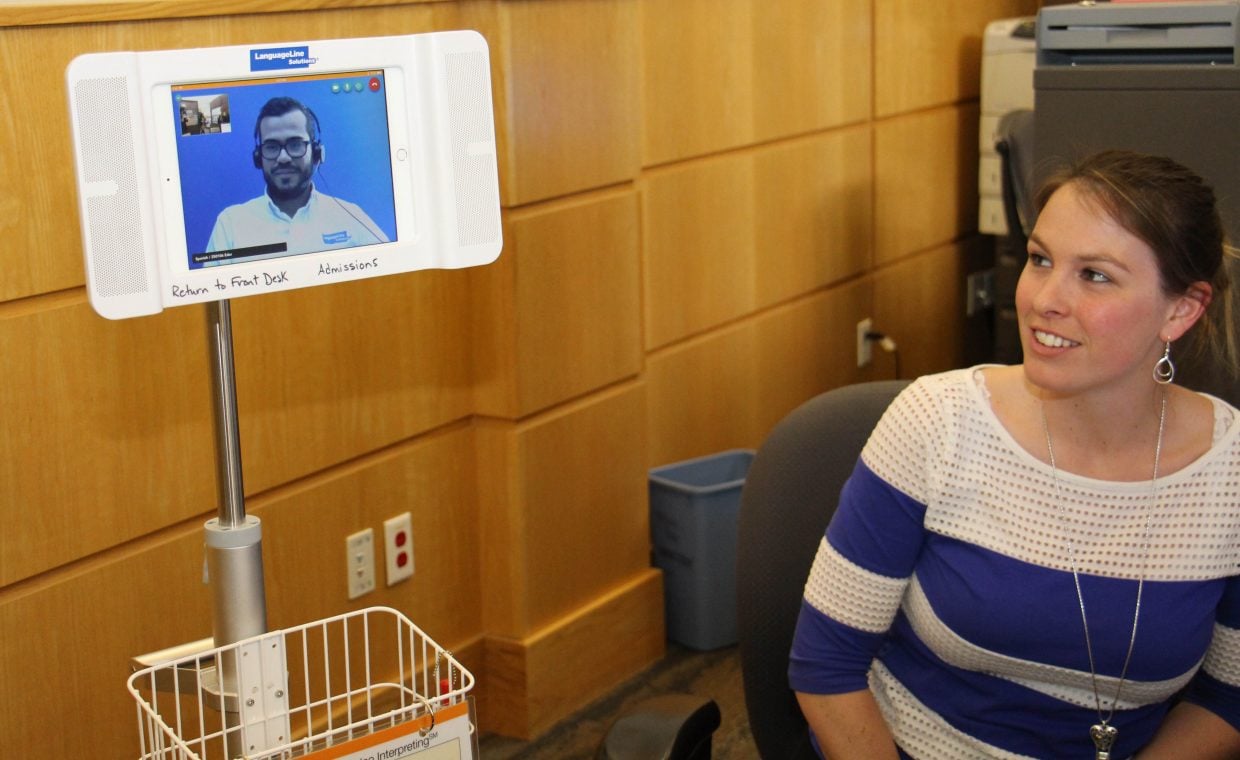Nearly 8% of the United Kingdom’s population speaks a language other than English as their first. That’s nearly 3 million people and amongst those that recognise English as their first language, over 8 million identify as deaf or hard of hearing.

The influence of these diverse audiences is enormous and growing. They are citizens, patients, and consumers. Meeting them in their preferred language builds loyalty, achieves compliance, and increases staff productivity while reducing expenses. The opportunities are clear, but the challenge is that—with dozens of languages spoken in UK today—it is very difficult for any organisation to meet this demand.
Video remote interpreting (VRI) is an on-demand platform that provides communication to limited English proficient (LEP), deaf, or hard-of-hearing individuals by connecting to a professional interpreter in an off-site location. This is done via camera and microphone on a tablet, smartphone, or desktop, using an internet or cellular connection. VRI reduces the risk of misunderstanding by capturing body language and facial expressions so you can read visual cues.
Before implementing VRI, your organisation should discuss the needs of your audience and how video will fit into your language access plan. Take the time to have this discussion with your front-line staff and any other key stakeholders. Here are a few questions to prompt discussion:
PATIENT/CUSTOMER NEEDS
- Would access to visual cues and emotional inflection improve communication with your LEP audience?
- Do you serve a significant population of people who are deaf or hard of hearing?
- Do you offer products or services that are complex or need to be explained in detail
- Do your products or services require users to fill out forms that may require assistance from an interpreter?
INTERNAL NEEDS
- Do you currently rely on non-professional interpreters (such as friends or relatives) when a need arises?
- Does front-line staff currently have difficulty answering questions or resolving issues with customers, clients, or patients who are LEP, deaf, or hard of hearing?
- Have you experienced an increase in customer, client, or patient complaints from these communities?
- Are there language access regulations with which your organisation needs to comply?
- If your organisation currently uses on-site interpreters who need to be scheduled in advance, would it be helpful to also have a solution for shorter, more urgent engagements?
- Does your organisation operate from multiple locations, which can make distribution of language access resources a challenge?
- Are you missing sales opportunities because of language barriers or a lack of language support?
- Do language barriers create bottlenecks in your ability to serve other clients?
Approaching video remote interpreting as an informed buyer will ensure that you implement the right solution. It also prepares you to use your new technology to its fullest capacity.
To learn more LanguageLine has extensive information on interpretation services and our professional customer service team will be more than happy to assist you with any enquiries you may have.
